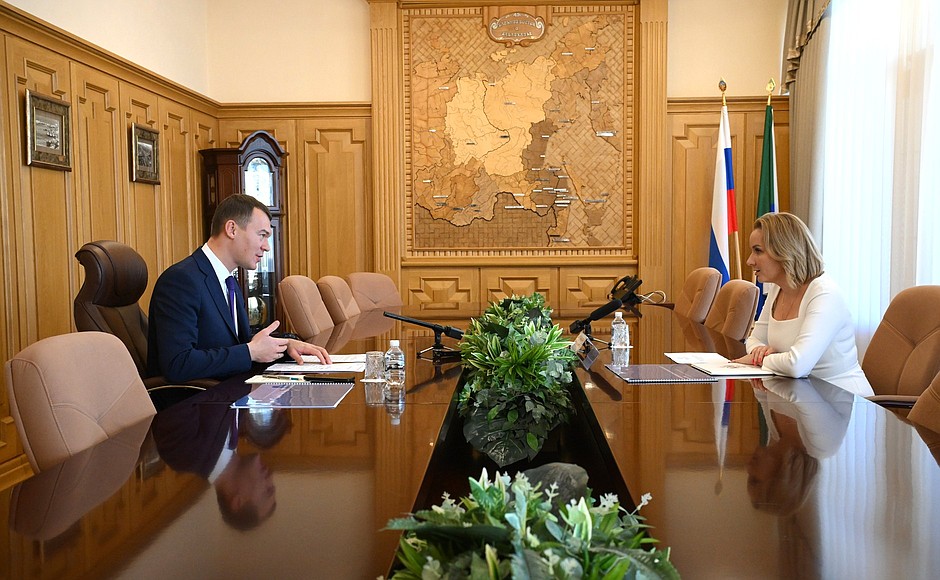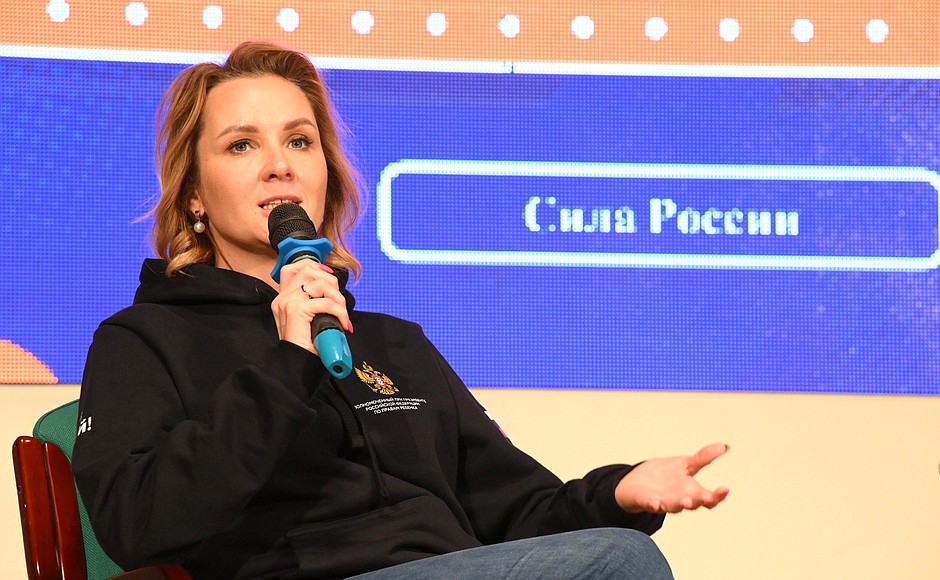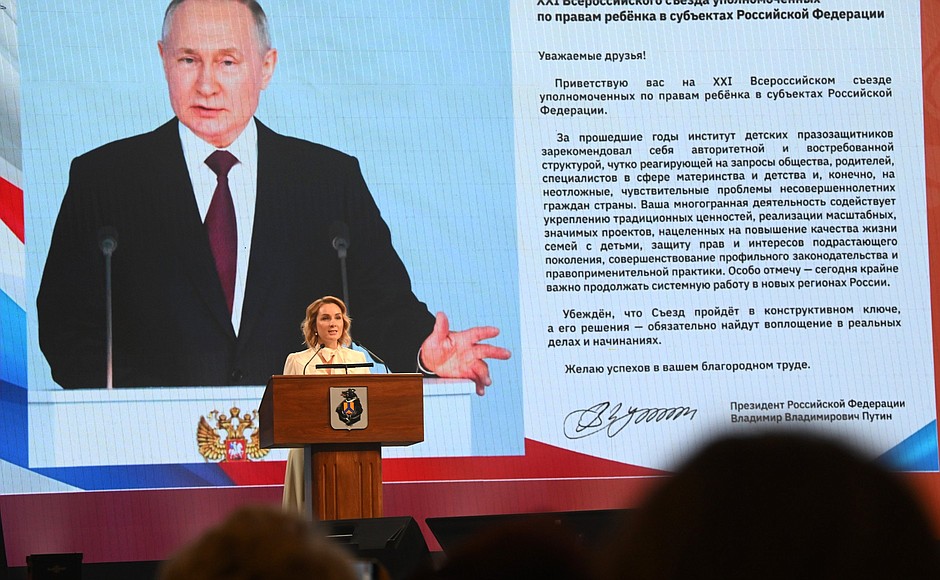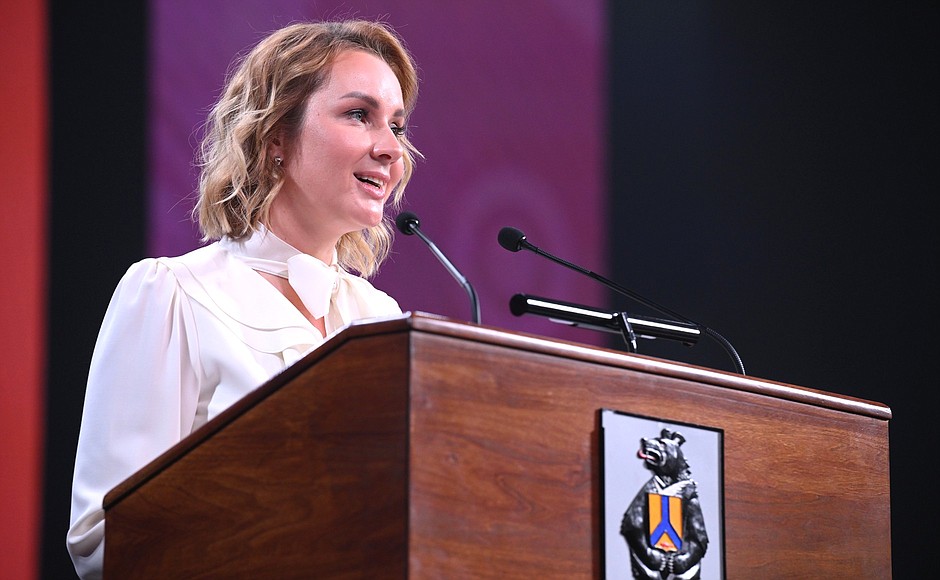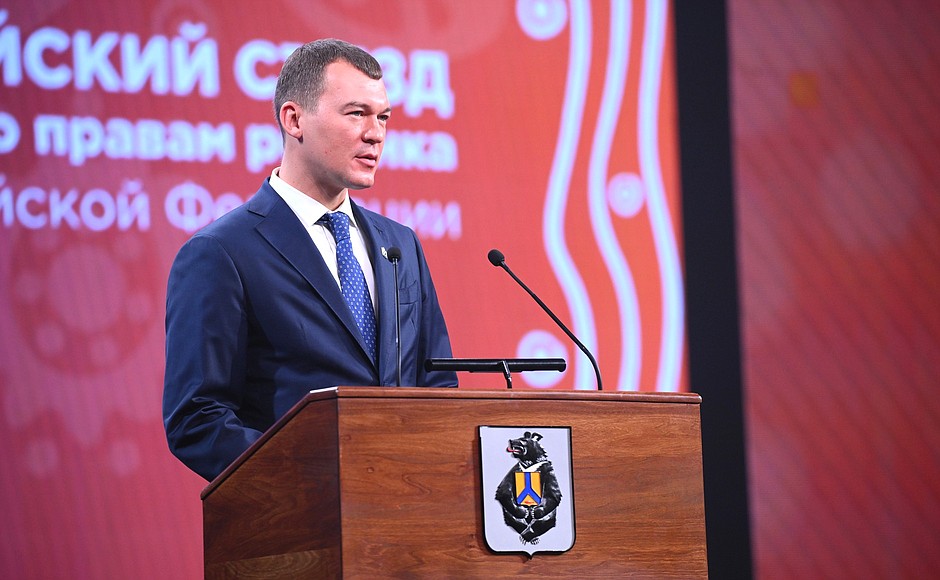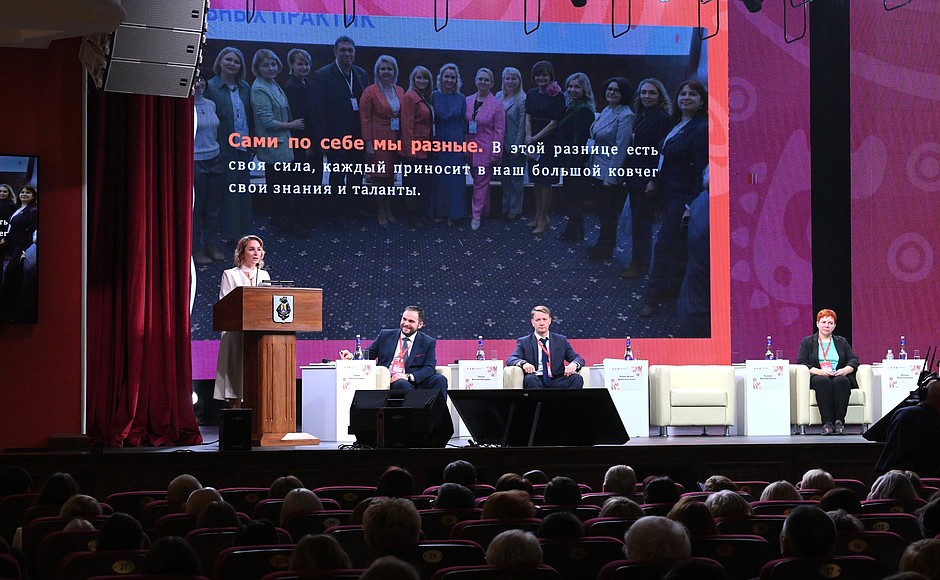During her trip, Maria Lvova-Belova had a working meeting with Governor of the Khabarovsk Territory Mikhail Degtyarev. The protection of children’s rights in the region was discussed, including the implementation of the Children’s Rights Commissioner’s strategic programmes. The Commissioner and the Governor agreed to expand cooperation.
The Commissioner held a meeting on the protection of the rights and legitimate interests of underage citizens in the Khabarovsk Territory, and also visited a children’s home.
Then Maria Lvova-Belova opened the third Power of Russia patriotic session. Its participants included boys aged 12–14, for whom individual preventive work is being carried out by the commissions on juvenile affairs and protection of their rights.
The Power of Russia project has been initiated by the Commissioner for Children’s Rights, supported by the President and is being carried out by the Federal Centre for Teenager Socialisation Programmes as part of the Teenagers of Russia strategic programme. Teachers, psychologists and mentors, who have undergone special training, work with children. There is an emphasis on sports and patriotic education.
On October 18–20, the 21st National Congress of Commissioners for Children’s Rights from Russian regions was held in Khabarovsk. It was dedicated to the 25th anniversary of the human rights institution and its development.
See also
In the greetings from the President, read by Maria Lvova-Belova, it was noted that, over the past few years, the Institute of Children’s Rights Commissioners had proven to be an authoritative and popular organisation, responsive to the needs of society, parents and specialists in the field of motherhood and childhood and, of course, to urgent sensitive problems of minors. The President called for continued system-wide work in the new regions of Russia.
The main focus of the forum was the development and promotion of the institute of regional commissioners for children’s rights, improving law enforcement practice and legislative initiatives in the field of childhood, implementation of the Commissioner’s strategic programmes, her interaction with federal and regional authorities, law enforcement agencies, civil society institutions and the media. Participants in the congress, together with experts, developed recommendations for monitoring the activities of orphanages, children’s homes, social rehabilitation centres, guardianship and custodianship authorities and commissions for juvenile affairs, and for protecting the rights of minors.
